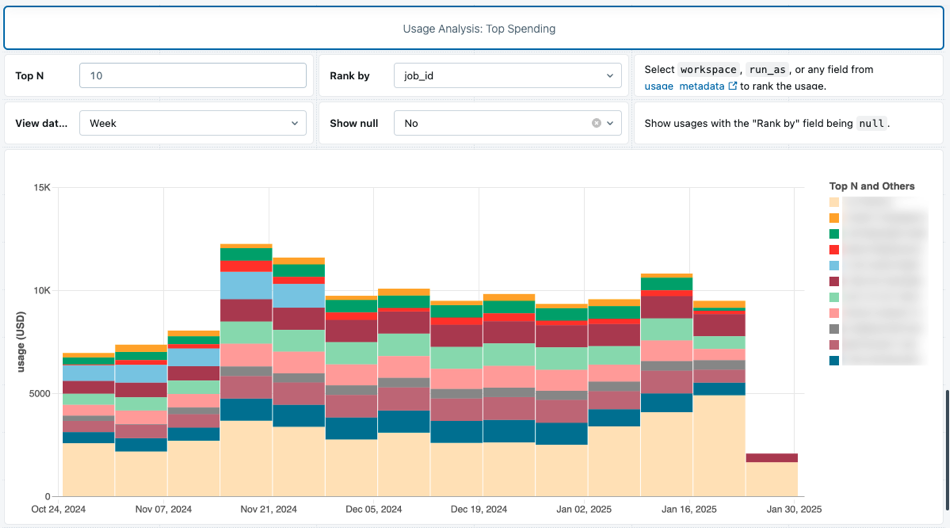Cost management tools on Databricks
The articles in this section outline the available cost controls and cost monitoring features available on Databricks.

Monitor costs with system tables
Your account’s billing logs are stored in the system.billing.usage table in your account. These logs include granular details about the billable usage incurred by your account, including metadata about the specific resources used, custom tags applied to the resources, and details about the identity responsible for the usage.
You can join your billing logs with additional system tables to gain more insights into specific feature usage.
For a list of available system tables, see Monitor costs using system tables.
Attribute usage with tags
Use tags to accurately attribute Databricks usage to your organization’s business units and teams for chargeback purposes. Tags are formatted as key:value pairs and can be added to compute resources in your account. Admins can also enforce the use of custom tags using compute policies.
These tags propogate to your account’s billing records so you can accurately attribute costs to specific users, groups, and projects.
See Attribute usage using tags.
Tag serverless compute usage
Preview
This feature is in Public Preview.
Use budget policies to add tags to serverless compute usage. When a user is assigned a budget policy, their serverless usage is tagged with their budget policy’s tags. See Attribute serverless usage with budget policies.
Create budgets
Create budgets and budget alerts to stay informed about usage across your account. You can set up budgets to either track account-wide spending, or apply filters to track the spending of specific teams, projects, or workspaces.
Import cost management dashboards
Account admins can import cost management AI/BI dashboards to any Unity Catalog-enabled workspace in their account. Once imported, a dashboard can be customized and shared like any other AI/BI dashboard.
See Usage dashboards.
Control costs by managing compute policies
You can use compute policies as a tool to control the type and size of compute resources certain users can create and access. See Create and manage compute policies.